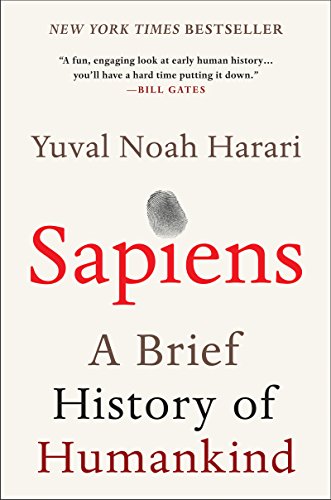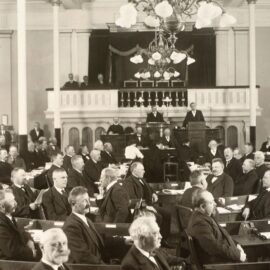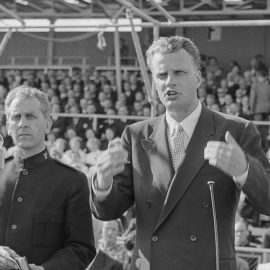

This article is an excerpt from the Shortform summary of "Sapiens: A Brief History of Humankind" by Yuval Noah Harari. Shortform has the world's best summaries of books you should be reading.
Like this article? Sign up for a free trial here .
What were the legacies of British rule in India? How did the British Raj irrevocably change the nation?
We’ll cover the British legacy in India and how empires, though often oppressive and unjust, bring benefits as well. See how the British rule in India has impacted the country today.
Legacies of British Rule in India
The conquest of India by the British Empire was brutal. Millions of Indians lost their lives and hundreds of millions more were exploited and mistreated. It’s understandable that some would want to try to return India to a state prior to the rule of the British Raj.
But this would mean a return to a fragmented territory. When the British invaded, they also united the numerous warring kingdoms and tribes that existed there. The British rule in India created a shared Indian identity.
To take away all British imperial legacies in India, you’d also have to remove the justice system, the government structure, the railroad network, democracy, the game of cricket, and chai tea.
And, if you succeeded in doing this, you’d be left not with the original, “pure” Indian culture, but rather the legacies of the equally-brutal Muslim empires of the Mughal and the sultanate of Delhi, which ruled India before the Brits. To do away with these legacies, you’d have to destroy one of India’s most iconic buildings, the Taj Mahal, among other structures and customs.
And if you succeeded here? You’d have the legacies of the Gupta Empire, the Kushan Empire, and the Maurya Empire to contend with.
You can’t really divorce a country from its imperial legacies.
Today, the world is smaller and more united because of the dissolving of past cultures, and the legacies of empires are innumerable. As opposed to the thousands of languages spoken by our ancestors, today, most of us speak an imperial language. Many native groups of European colonies embraced the Western values of self-determinism and human rights and used these values against their Western masters in their fights against colonial rule. There’s no going back to a “pure” culture, one untainted by imperialism. Its legacies are everywhere, and to somehow extract these legacies would by to destroy every contemporary culture.
Critiques of Empire
In modern times, “empire” and “imperialism” are bad words. Empires like the British rule in India are accused of destroying and exploiting local resources and ways of life. The establishment and maintenance of many of the most successful empires did involve destruction and violence, including war, enslavement, and genocide. But as we’ll see throughout this chapter, empires have shaped the world in positive ways as well, and in fact, much of our human culture is based on the legacies of empire.
Benevolent Imperialism
Sapiens have evolved the survival instinct to distinguish “us” from “them.” For example, the name of Sudan’s Dinka people means “people,” as if members of other tribes aren’t even human. Similarly, the name of Sudan’s Nuer group means “original people” and the name of the Yupik people in Alaska and Siberia means “real people.” We’re programmed to care only about “us,” ourselves and those immediately around us, who share our language, beliefs, and customs.
It’s surprising, then, that since Cyrus the Great of Persia established the first Persian Empire around 550 BC, kings and emperors have claimed to conquer territories and people for their own good. And there was some benefit for conquered people—uniting different nations were under one government facilitated the dissemination of ideas, technology, and goods. Like the British empire in India, many empires have intended (or purported) to benefit their new subjects.
It was to the advantage of the ruler to encourage this spread of ideas and goods. For one thing, it made ruling easier. It’s hard to run an empire in which every territory has its own language, currency, and laws. Encouraging trade and the transmission of ideas helped standardize government policies and structures.
It also justified their rule. If kings spread what they saw as their own culture’s superior language, currency, and laws, they could feel they were doing so for the benefit of all subjects. And whether they were planning cities, standardizing measures, or imposing taxes, rulers and their administrations genuinely believed they were working for the good of all subjects.
This has happened throughout history. Cyrus the Great wanted to bring all the benefits of being Persian subjects to new cultures while letting them maintain their traditions. He famously ordered that exiled Jews be allowed to return to their homeland and rebuild their temple and even gave them the money to do so. Similarly, Chinese emperors believed they were educating their barbarian neighbors. Muslim caliphs sought to share Muhammad’s revelation. Brits sought to introduce the world to liberalism and free trade. And Americans believe it’s their moral duty to establish democracy and the concept of human rights in developing countries, even if they have to do it through war.
In a world in which we’re programmed to be xenophobic, these rulers attempted to be inclusive and unite different people under one political system. This does make the British rule in India just.
Example: British Colonization of India and the Marriage of Science and Empire
Unlike when the Muslims conquered India, the British raj brought scientists to not only study Indian geography, geology, zoology, and culture, but also to get data on rare spiders, uncover ruins, and discover the origins of extinct Indian languages.
British officers were expected to spend up to three years studying Hindu and Muslim law; the Sanskrit, Urdu, and Persian languages; and Tamil, Bengali, and Hindustani culture. The British believed that knowledge of your subjects was essential to ruling them. The education of British officers in India a true marriage of imperial and scholarly goals.
The British discovered India’s first notable civilization, a civilization even the Indians weren’t aware of, when they explored forgotten ruins. They discovered that the languages of Sanskrit and Hindu shared a common ancestor with Greek and Latin languages. Scientists made breakthroughs that spawned new areas of research still explored today.
This wasn’t knowledge for the sake of knowledge. The work of British scientists allowed a small British population of 175,000 to rule a country of 300 million Indians. Knowledge was their imperial superpower.
———End of Preview———

Like what you just read? Read the rest of the world's best summary of "Sapiens" at Shortform . Learn the book's critical concepts in 20 minutes or less .
Here's what you'll find in our full Sapiens summary :
- How Sapiens outlived and outlasted the 8+ other human-like species on Earth
- The 3 critical revolutions in human existence that led to our domination of the planet
- How much of what powers our world today is really just a shared mass delusion
- What the future of humanity might look like






